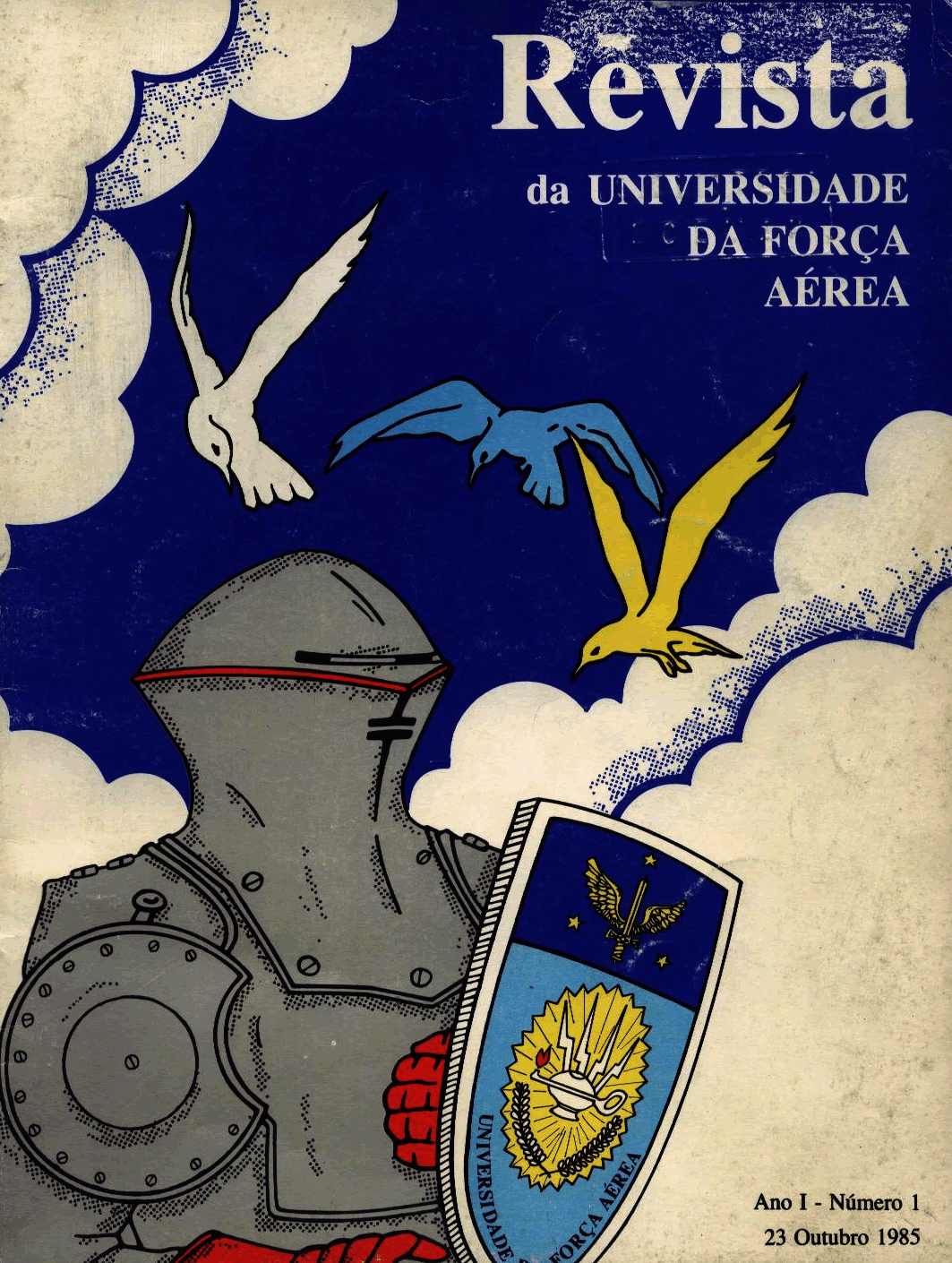A new philosophy for scientific instruction
DOI:
https://doi.org/10.22480/revunifa.1985.1.560Keywords:
Officer training, scientific instruction, cadre of officers, Duties of the officerAbstract
The purpose of this article was to demonstrate the need to promote better adaptation of the programmatic content of the curriculum of Scientific Instruction taught at the Academy, as well as the adequacy of its philosophy of education, to the function of the Officer within the Institution. To achieve our goal, we use the method of philosophical research, making use of organizational concepts, teaching principles and personal observations. With regard to the Boards, these we understand as technical functions, that is, integral parts of the set of specific activities, necessary to achieve the objectives of an organization and exercised by the leading element. In order to better explain this approach, we made a study of the functions of the human element in the organizational context. Analyzing the picture from the educational point of view, it can be inferred that, for the executor, professional education should be structured in direct relation to a specific activity and its instruments of action. However, for the leader, this structure should be based, mainly, on the field of knowledge of the administrative and organizational areas, regardless of the technical areas that may involve the middle and end activities of the organization. We consider that it would be better for the Officer to possess an improved knowledge of direction, which would allow him to advise himself well on various assumptions, than to possess a diverse range of knowledge, however, at a basic level.
References
ACADEMIA DA FORÇA AÉREA. Plano geral de ensino. Pirassununga, 1985.
CARVALHO, Irene Mello. O processo didático. 2. ed. Rio de Janeiro, Fundação Getúlio Vargas, 1978.
CHIAVENATO, Idalberto. Teoria geral da administração. São Paulo, McGraw-Hill do Brasil, 1979, v. 1 e 2.
CIRIGLIANO, Gustavo F. G. Fenomenologia da educação. Petrópolis, Vozes, 1969.
DENT, David R. Papéis da educação militar profissional na formação do Oficial. Air University Rewiew, Maxwell, 27 (3/4): 87-94, primavera-verão 1976. Edição Brasileira.
BRASIL. Ministério da Aeronáutica. Diretoria de Ensino. Conceituações básicas de ensino (IMA 37-10). Rio de Janeiro, 1983.
FERREIRA, Aurélio Buarque de Holanda. Novo dicionário da língua portuguesa. Rio de Janeiro. Nova Fronteira, 1975.
LUDWIG, Antônio Carlos Will. Análise dos fins educacionais relativos aos cursos de formação de Oficiais aviadores e intendentes. Universidade Metodista de Piracicaba, 1981. Tese de Mestrado.
SANTOS, Theobaldo Miranda. Noções de pedagogia científica. Companhia Editora Nacional. São Paulo, 1963. v. 5.
SPERB, Dalilla C. Problemas gerais de currículo. 5. ed. Porto Alegre, Globo, 1979.
TURRA, Clódia Maria Godoy et alii. Planejamento de ensino e avaliação. 6. ed. Porto Alegre, PUC-EMMA, 1975.
Downloads
Published
Issue
Section
License
Copyright (c) 1985 Nilton Ribeiro

This work is licensed under a Creative Commons Attribution-NonCommercial 4.0 International License.
Revista da UNIFA permite que o (s) autor (es) mantenha(m) seus direitos autorais sem restrições. Atribuição-NãoComercial 4.0 Internacional (CC BY-NC 4.0) - Revista da UNIFA é regida pela licença CC-BY-NC









